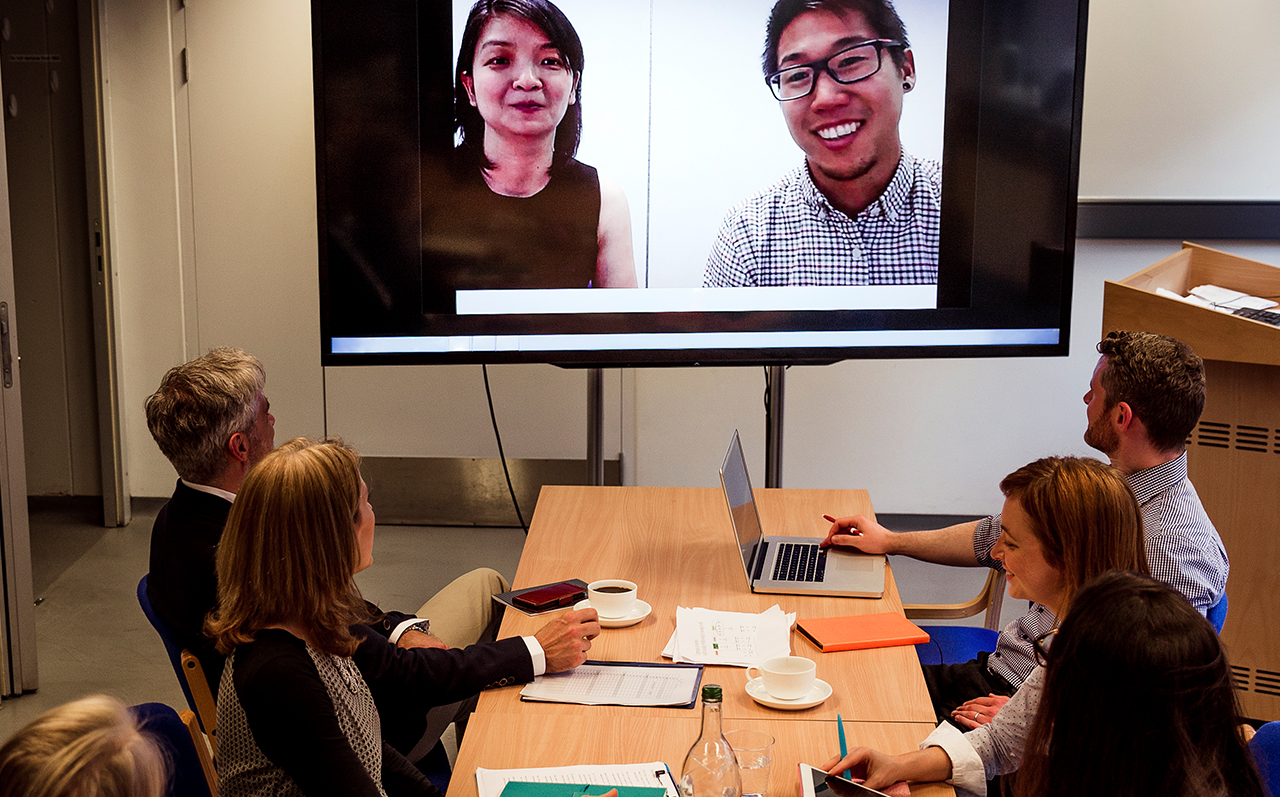Leading virtual intercultural teams in international projects
Modern technologies now enable us to communicate virtually via videoconferencing and email as well as remotely across multiple locations. Managers often speak with their partners in a second language. Additionally, different nations, cultures, ethnic groups and organizations communicate differently so misunderstandings are frequent and costs can escalate. Therefore, international corporations need to be aware that communicating virtually, and across cultures is adding new levels of complexity and requires a new global mindset. Managers with this kind of awareness have to work with dissimilar partners, bridge cultural gaps, adapt to different business practices and encourage diversity to achieve organizational goals.
In a global business environment it is important
to understand how a message is communicated, and understood by people from different countries and cultures. Managers, project leaders and even management trainees have to motivate, give feedback and ensure progress is made.
merle & sheppard offer customized support to enhance your leadership competence in international projects.
Much of our client’s project communication is virtual either by email, phone or video conference. This makes it difficult to build trust, develop a strong team spirit and manage tasks with colleagues from different cultures. Recipients may easily feel insulted. They read and interpret a business letter according to their cultural bias and might misunderstand it: different expectations, missed deadlines and budget overruns are likely to happen.
If you lead or manage a project team...
Our consultants have custom designed and held one- to three-day training programmes on how to lead international virtual teams more effectively and develop cross-cultural competence, both on a personal and at team level. The client's participants benefitted from being able to transfer their specific communication challenges directly into the training concept and could apply their newly gained knowledge immediately after the training.
If you are a trainee manager...
To develop better leadership skills and a global mindset our client’s management trainees were first given face-to-face workshops and virtual training to help them with their assignments in different countries. Three months later they received individual coaching so they could review their experiences and further develop their personal competence. This approach enabled very targeted learning transfer and improved performance so that the trainees could rapidly adapt to their expatriate environments and still achieve their management objectives.
Participants of the virtual leadership training learned to
- Build and maintain trustful relationships
- Develop shared goals
- Create a motivating virtual team environment
- Establish a common feedback culture
- Coach team members virtually
- Be visible as a leader
- Be aware of and adapt to different cultural communication behaviours
Members of the meeting reported several immediate advantages:
- pragmatic learning techniques are more easily integrated into daily working life
- direct transfer of learning provided a solid basis to make virtual teamwork more effective
- team- and trust-building was reinforced through involving the whole team
- coaching enabled individuals to develop specific leadership strengths
Developing a global virtual working culture can be at executive and management level, across departments or throughout the whole organization.

